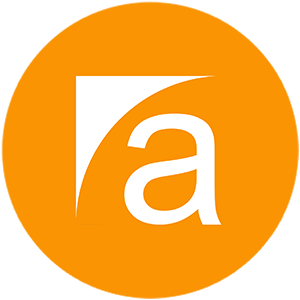For most of us, our jobs will take up nearly a third of our adult lives (at least until we retire). During that time, you may seek new jobs and careers, pursue promotions and raises, or want to transfer to companies and industries that are more exciting to you.
If that sounds like you, you have come to the right place. I gathered some intel from our Recruiting Manager, Krystle Fister, to identify what her team looks for in a job candidate, how that candidate can stand out, and how they can improve themselves before they even apply.
Have a Detailed Resume
Your resume is going to be the first thing a recruiter sees, and recruiters are the gatekeepers of the hiring process. If you want to stand out, make sure that you have a clear, detailed resume that features your best skills, education, and experience.
Some of the top thing’s recruiters look for include:
Employee Duration
When reviewing candidates for possible opportunities one of the first things we look through is the work history of any given applicant. Reading through previous work experience helps you understand more about what that person achieved in their role, but also tells you how long that person stayed, or held their current position which can be the most telling bit of information on a resume.

Candidates who typically have held multiple short-term roles over a few years tend to raise red flags. Companies, such as Affirma are looking for those who are invested in the employer and the projects they are on, so when you see a lot of “hopping around” it can cause concern, but that doesn’t mean they are out of the running. If you’ve held shorter contract roles, include a one-sentence explanation that helps explain why you moved on so quickly.
Often we weigh your short-term employment curations against skills, education, and experience so, along with a good one-sentence explanation, developing your skills, working on projects, and gaining new certifications makes all the difference.
Skills
The #1 thing your employer cares about is if you have the skills required to do the job. For many employers, no matter how skilled you are, how you present yourself to coworkers and clients will either make or break your candidacy. When presenting your skills on your resume, be prepared to lay out all your job-specific skills. Make sure to present these as bullet points, and save space to elaborate on project successes, and how your skills contributed to them.
Projects and Project Details
Once you have gained your new skill, the best thing you can do is practice, practice, practice. At the end of the day, you’ll have to prove that you can use the skill, whether you are looking to move to a new job or stay at the same company in the same position. This means working on a project and building your portfolio with projects demonstrating your new skill.
Most recruiters and potential managers are more impressed by a lengthy portfolio of projects where you “designed a new interface that increased user retention by 200%” than they are interested in a list of YouTube videos you watched to learn about skills in theory. Include a portfolio, where applicable, and be ready to talk about projects and successes one way or another.
If you are trying to gain experience and you have none, try launching a personal project on Kickstarter, volunteer for an open-source project on GitHub, or find a part-time job that serves as a career builder.
Include a portfolio (Where Applicable)
Only specific jobs require a portfolio, ie. Design-related fields, but most jobs care about the projects you have worked on before. While you may not need a full, art portfolio, it may still benefit you to keep a binder full of project screenshots and stats.
Portfolio lengths and contents may vary from person to person. However, it may also behoove you to consider having two versions: one that is 7-10 pages long that serves as a “work sample” teaser, and then a full portfolio (often having 50+ pages) that is available upon request.
If the job you are applying for does require a portfolio, spend some real time on it. If projects and applications of skills are the most important thing to a recruiter, then your portfolio is going to have the biggest effect on your hiring. Keep doing great work, keep featuring it in your portfolio, and you’ll have a solid foundation to get hired!
Education and Certifications
We also look at various certifications, previous types of companies a person has been as well as any LinkedIn recommendations in account to compare against those red flags. Because of this, it’s always great when a candidate has a detailed resume, outlining specific skill sets they have, projects they’ve worked on, or highlighting a portfolio. Often, the positive outweighs the negative, and we will contact someone to chat through those red flags we originally spotted.
Your resume is going to be the first thing a recruiter sees, and recruiters are the gatekeepers of the hiring process. Of course, a good resume is what it takes to get in the door – next, you must ace your phone interview.
Show Off Your Soft Skills in Your Phone Interview
A successful phone screen the next most important thing when reviewing candidates for submission to the hiring team. Recruiters want to ensure candidates can speak confidently to the work they have done and can address areas of concern they’ve seen they will be submitted to the hiring team for review. It’s also important that that you read up on the company you are applying to and can demonstrate strong soft skills during that initial call. Since a Recruiter is often not asking technically based questions, it’s a great time to get to know the candidate, and for the candidate to learn more by asking questions about the company to the Recruiter.

In-Person Interview: Show What You Know and That You Care
Prepare for Common Questions
What is your greatest strength/weakness?
You knew this question was coming. Everyone asks it, and most answer it poorly. If your answer sounds anything like “I just work too hard, and care too much” that is a terrible answer. On the other hand, saying that you can be “overly proud of your work, and struggle to delegate sometimes” (and what you do to counteract that tendency) could be a pretty solid answer. The purpose of this question is to detect confidence, humility, and proactiveness in a potential answer. Be prepared to answer it honestly and seriously – and you should ace this question.
What is a time where you employed an outside-the-box solution? What was your approach to the problem and what was the result of the solution?
The recruiter or manager here is testing for creative problem solving, your thought process, and your ability to work through a challenging situation. Make sure that your answer touches upon those qualities.
What is a project you worked on that you hated, and what did you contribute to and learn from it?
This question, and others like it, are designed to determine what your personality is like. You are going to run into frustrating times at your new job. Do you brush it off as part of the job, or does frustration compromise you? Are you able to work through the stress, or does it decrease your effectiveness? Do you take out your frustrations on those around you, or are you able to control your emotions? Do you generally have a positive outlook at work or a negative one?
Again, your answer should be prepared to address these points.
What is a time you have had to put yourself in a client’s shoes, and had to make a “game-time” decision on your own that benefited your client?
For companies that aren’t the micro-manager types, your managers and coworkers want to test your judgment and your tenacity. Do you need someone to help you with every task? What if a decision is time-sensitive and you can’t ask the client or a manager about something? It is really important to have a good answer to this because the person asking it wants to know how much they can trust you at the “front-lines” rather than what quality of work you can do “back at camp.” Your answer here might not just affect your likelihood of being hired, but what level of responsibility might be hoisted upon you after your hiring.
Conclusion
No guide to getting hired will ever be complete. Each industry has its requirements, and each company has its own “flavors”. However, the basic principles in this post will give you a solid launching platform into any new career.
Use your newfound power wisely!

Comments are closed.